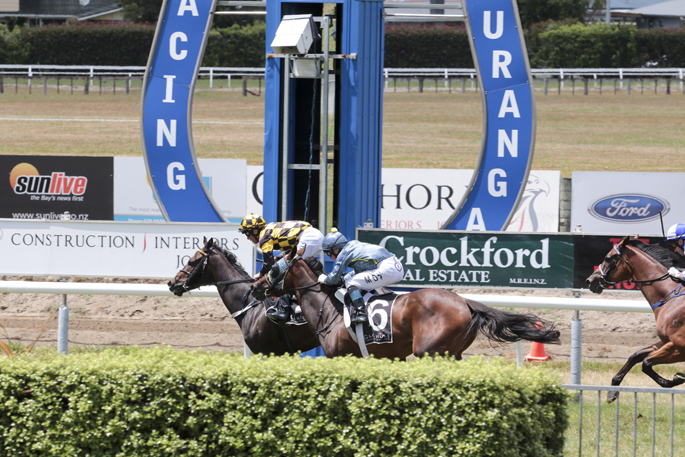Having a flutter on the nags is a time-honoured tradition, and our part of the world is no exception.
When you choose to spend a bit of time at Tauranga races this summer, you're joining an historical institution that goes back over 150 years.
The finest thoroughbred horses will line up in Racing Tauranga's meetings over the summer holiday period.
The Interislander Summer Festival takes place on Wednesday, January 2, while Summer Raceday is on Friday, January 18, and Waitangi Day Races on Wednesday, February 6.
It all takes place on the same patch of Greerton turf their predecessors have been thundering around since for over 140 years.
The first organised meeting in Tauranga took place on New Years' Day 1873, and the Tauranga Jockey Club came into being later that year. The land for the current course at Greerton was also handed over by the government, and set up ready to stage its first meeting on January 8, 1874.
Unfortunately history does not record the sums won and lost at that first meeting.
Not that it's compulsory to have a flutter at the races. Many people go just to enjoy the sensory experience of the finely-toned equines on the charge, the family fun, or perhaps the social interaction with the dress-to-impress brigade.
That, fortunately, is one historical upside of the race-going tradition that has not entirely died out.
Back in the day, of course, you wouldn't been seen at the races in anything less than your Sunday best. Today that's no longer the case – tidy casual threads will do nicely in public areas – but if flashing yourself up in your finery is your thing, the race course is the ideal place to strut your stuff.
For the fully-committed, Fashions in the Field competitions are a regular feature of many race days, and that's before you get to the betting.
Everyone has their theories on how to pick a winner, and some are more scientifically-grounded than others. An ability to judge horse-flesh and a knowledge of form are no doubt helpful, but at the end of the day luck always plays the biggest part, so don't be afraid to follow your own system.
Remember to set your budget realistically beforehand and stick to it.
For some, an off-putting aspect of a day at the races is the half-hour gap between starts, but it always seems to pass quickly.
There is, after all, the crucial matter of sorting out your picks for the next race. If you're basing your selections on the number of letters after M in the alphabet in the jockeys' last names, you've got to allow enough time to get your research done, haven't you?

